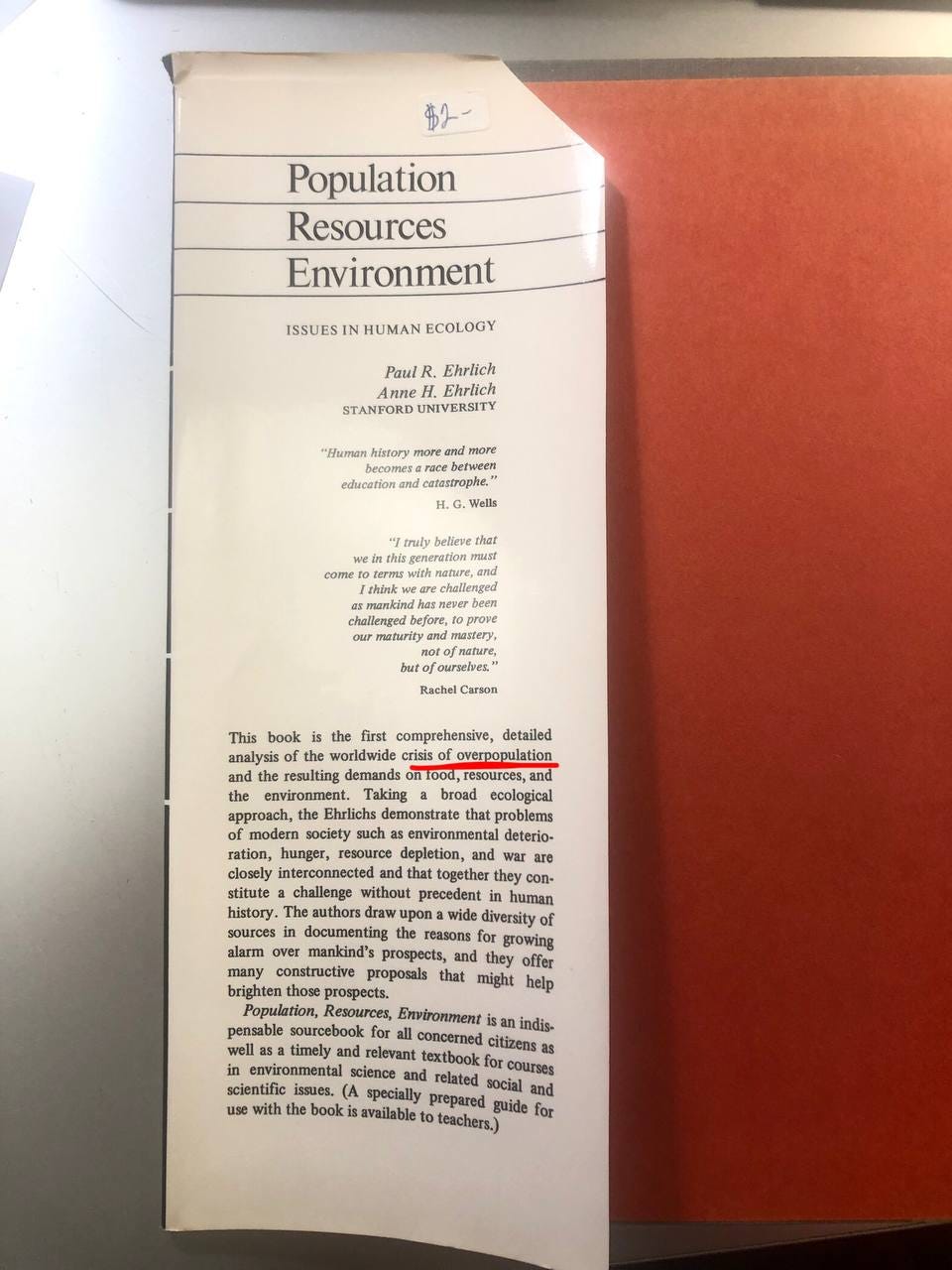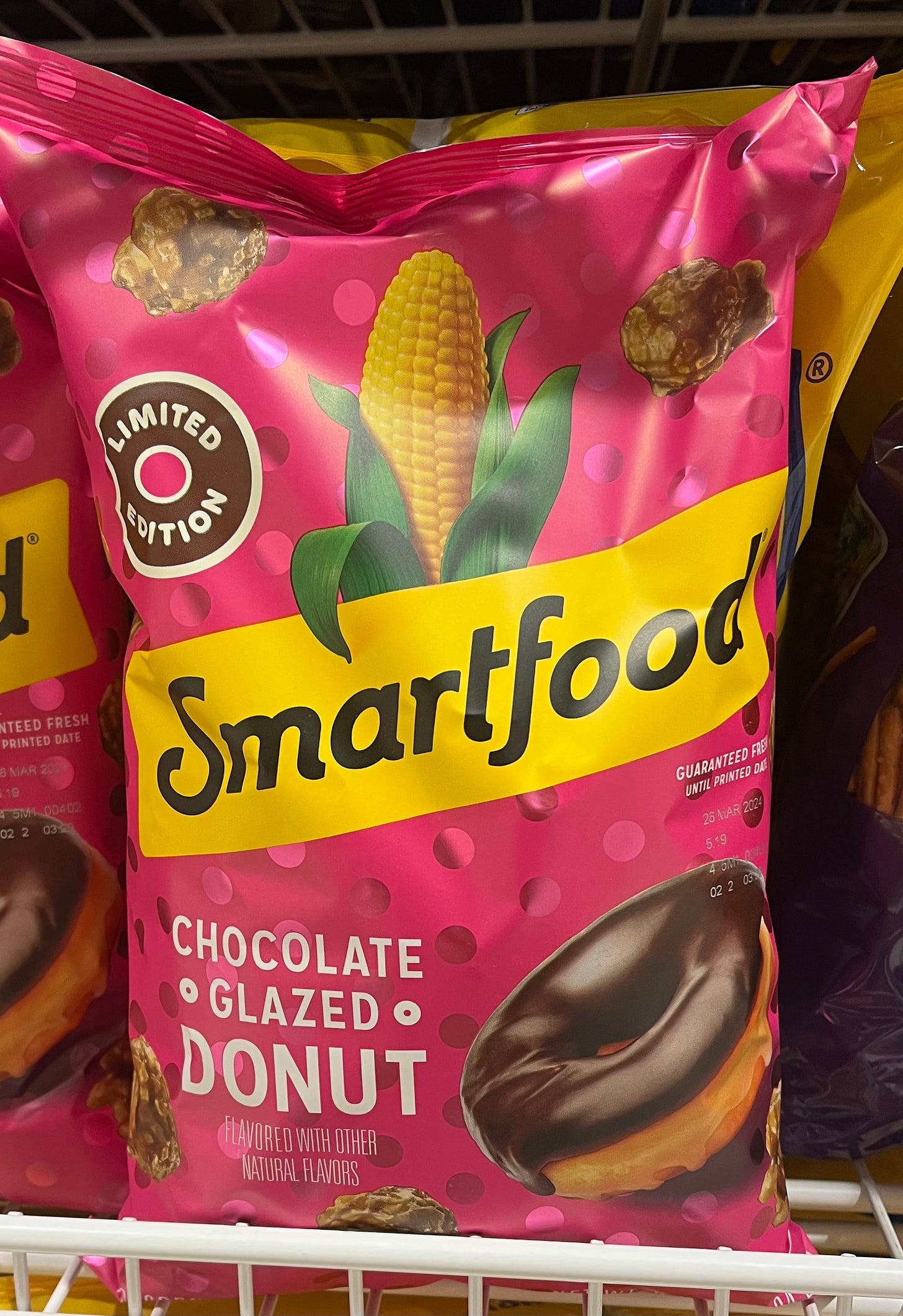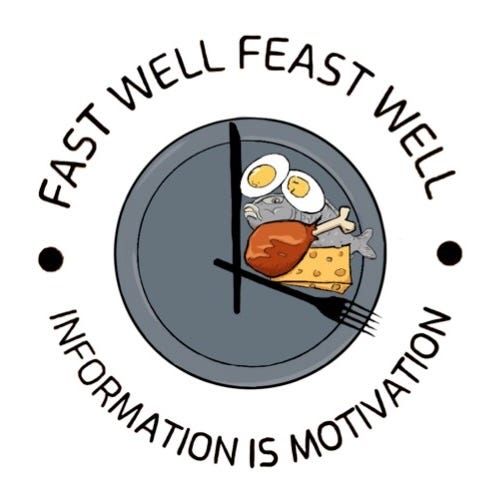Stevia May Cause Infertility: Some Disturbing Facts
Indians in Paraguay chewed the leaves of the stevia plant to prevent pregnancy. In 1970, a book proposed that it could be added to the food supply for population control. The Internet is silent.
I sometimes hesitate to be the lone voice on the Internet ringing the alarm bell. However, my experience so far is that if the information is reliable, it won’t be long until others will be confirming my findings.
This was overwhelmingly the case when I wrote about Fenbendazole being an incredible cure for many cancers, even cancers deemed “incurable” by mainstream chemo methods. Even Joe Rogan mentioned fenben on a recent show. (I don’t mean to imply that such people heard about it from me. It’s in the medical literature for all to read. I tried to link to the 3-min Rogan clip, but YouTube took it down. You can still access it on X here.)
The information about Stevia falls into a similar category. When I first wrote about fenben, the question kept plaguing me: “How can this possibly be a cancer cure if almost no one is talking about it?“
As I type this post today, a similar question lurks behind every sentence: “Surely this info about stevia can’t be true. If it were, why is no one talking about it?”
But I’ve learned a thing or two on this health research journey. If further info comes out confirming the truth of this, it would certainly not be the first time in history that the medical/scientific industrial complex pulled a “fast one” on the public.
Many philanthropaths (not a typo) have openly stated that their number one mission in life is to depopulate the earth. (I won’t mention any names, but I’m thinking of a person whose name rhymes with Gill Bates.) Therefore, it’s not a conspiracy to believe that billionaires are using their wealth and influence to decrease worldwide fertility. Whether or not this applies to Stevia remains to be seen. I don’t want to be Chicken Little but I also don’t want to be an ostrich with my head in the sand.
My goal as an independent researcher is to present you with facts to consider.
Ideas on How to Reduce Fertility
In 1970, husband and wife team Paul and Anne Ehrlich wrote a book called Population Resources Environment: Issues in Human Ecology.
I have not read the book, but the inside jacket gives a synopsis:
This book is the first comprehensive, detailed analysis of the worldwide crisis of overpopulation and the resulting demands on food, resources, and the environment. Taking a broad ecological approach, the Ehrlichs demonstrate that problems of modern society such as environmental deterioration, hunger, resource depletion, and war are closely interconnected and that together they constitute a challenge without precedent in human history. The authors draw upon a wide diversity of sources in documenting the reasons for growing alarm over mankind’s prospects, and they offer many constructive proposals that might help brighten these prospects. [emphasis mine]
As it turns out, the Ehrlichs present a possible solution to the overpopulation crisis. On page 227, they name some chemical methods to reduce the population.
NONSTEROID CHEMICAL METHODS
A variety of chemicals are in the process of being tested on laboratory animals, in the hope of finding some that will not have the drawbacks of the steroid compounds. But since many seem to act by influencing some part of the natural hormone system, it is not too surprising that similar side-effects have occurred in association with some of them. Nevertheless, these possibilities, which have only begun to be investigated, deserve careful examination.
At least one folk-method of contraception is being looked into. A South American week, Stevia rebaudiana, has traditionally been used by the Indians of Paraguay as a contraceptive. Each day the women drink a cup of water in which the powdered weed has been boiled.
The Ehrlichs go on to say that animal experiments showed a 57%-79% reduction in fertility lasting up to two months after discontinued use. How promising!
This may be the rat study the Ehrich’s are referring to. I found the abstract on Pubmed. It’s from 1969:
A water decoction of the plant Stevia rebaudiana Bertoni reduces fertility in adult female rats of proven fertility. The decoction continues to descrease fertility for at least 50 to 60 days after intake is stopped. The decoction did not affect appetite and apparently did not affect the health of adults rats.
Before protesting that this is a rat study and not a human study, keep in mind that there’s a reason why scientists use rats and mice so often in lab experiments—certain things correlate very closely between species. Things that make rats infertile will often make humans infertile as well.
It’s comforting to know that fertility returned to rats after 60 days off the stevia. However, 60 days to a rat does not correlate to 60 days in a human. Their ultra-fast metabolism makes them recover more quickly. It would likely take a human much longer to recover from the effects.
I try to be careful about speculating about things I can’t prove. Therefore, the purpose of this post is not to convince you that Stevia was purposely put into the food supply to reduce fertility. However, I do want to continually present you with facts so you can be cautious.
Most people likely know someone who got pregnant while consuming Stevia. Notice that the reduction in fertility is only around a half to three-fourths. Some people’s bodies more easily function in the presence of toxins than others.
If I were an evil billionaire trying to depopulate the earth so I could use it as my personal playground and rid myself of all the teeming, filthy, miserable plebes, not worthy to aspire to my unmatched greatness, and breeding like sewer rats, trampling the pristine planet, and desecrating the most holy god Mother Nature just by existing, then I would prefer to use a substance that was effective much of the time but not often enough that people began to catch on.
I had an eerie experience when I was writing my post How Zero Calorie Sweeteners Can Sabotage Your Success.
My main point in that post was to show evidence that when your brain senses a sweet taste, it releases insulin, the hormone that signals your fat cells to grow larger and larger. If no calories are accompanied by this insulin release, your body will signal you to eat extra to balance the extra insulin. This seems well established to me from multiple studies, and it’s also the reason why you’ve never met a person who’s lost a single pound switching from regular Coke to Diet.
But, as often happens with my posts, my research got sidetracked by coming across numerous studies about the harms of various alt-sweeteners. And here’s where things got strange.
All the studies of the harms were released after an alternative hit the market. Originally, all the science was “gung ho Sweet ‘N’ Lo. Sweet ‘N’ Lo is the bomb. It can do no harm. It had NO side effects. Anyone who doubts it is a crunchy, koo-koo, prepper, hoarder, who doesn’t wear deodorant, not even the natural kind.”
But then aspartame hit the market, and out came all the research about how harmful Sweet ‘N’ Lo was. And then came sucralose (Splenda), along with all the research about how aspartame causes cancer, Alzheimer’s etc. Notice a pattern?
And now we’re in the middle of the Stevia part of this story. Here’s the eerie part.
When I was writing that post, I was looking to see if I could find anything negative about Stevia, and I found radio silence. Stevia is praised to the skies, even by organizations claiming to promote natural health such as Trim Healthy Mama. Andrew Huberman (whom I’ve learned many things from and respect in some ways) sees nothing wrong with it.
Medical study after study sings its praises. Jason Fung, in his book Obesity Code, has a chapter on zero-calorie sweeteners, and he is one of the only health influencers I could find who had a single negative thing to say about it. (And his concern is only about the insulin response).
Now at this point, I know what you’re thinking: it sounds a little loony to doubt something simply because it has no evidence against it. It may seem like I’m falling for the logic that says: “Elephants must run through this house really fast because we never see them.”
But when you consider Stevia’s overwhelming praise in light of the controversy surrounding every other last health claim ever made, it seems quite odd. Any health claim that you read will be contradicted about 5 minutes later: eggs are bad, eggs are good. Milk is bad, milk is good. Salt is the worst, and also you need salt to survive.
Former big food consultant Calley Means explains in this 4-minute video that the confusion is intentional.
The food industry wants you to be bewildered out of your mind about contradictory health info so you throw up your hands and say, “If no one can agree on what’s good for me, I’m just going to eat Cheetos and chocolate glazed donut flavored popcorn.”
[I love how this is called “Smartfood!” It makes you smart, and if you’re smart, you’ll buy it now before the limited edition runs out.]
Back to my main point. The mainstream media publishes conflicting data on every last crumb of health info. It even went after intermittent fasting of all things: one of the world’s oldest healing strategies, practiced in every world religion, one of the safest, most effective, easiest things a person could do, plus it’s free. They attack fasting, yet Stevia is without any critics?
Dr. Mark Mattson and a team of researchers spent 30 years carefully documenting all the positive changes that happen in the body (summarized in this book), and then the American Heart Association quotes an unpublished, non-peer-reviewed, observational study (the lowest quality of evidence), doesn’t even give the details of the study, and this generates dozens of mainstream headlines. (I did a podcast on this here in case you missed it.)
My point is that practices that are well-established by science get put through the wringer in the mainstream media—but not Stevia? No one is even questioning it?
(Note: even if I become convinced that there is a top-down conspiracy to put it in the food supply, I don’t mean to imply that the average health influencer is in on it. If there is no negative data available, of course the Hubermans and all the rest of the well-meaning influencers won’t have the info to question it.)
Another weird question: why have there been no fertility studies since the 1960s making sure that one of the world’s most popular alternative sweeteners isn’t causing infertility? I see some studies claiming that Stevia is good for heart health (whatever).
Actually, I take that back. I found one from 1999 that found that Stevia reduced sperm count and testosterone in male rats:
A study conducted on prepubertal male rats showed that chronic administration (60 days) of a Stevia rebaudiana aqueous extract produced a decrease in final weight of testis, seminal vesicle and cauda epididymidis. In addition, the fructose content of the accessory sex glands and the epididymal sperm concentration are decreased. Stevia treatment tended to decrease the plasma testosterone level, probably by a putative affinity of glycosides of extract for a certain androgen receptor, and no alteration occurred in luteinizing hormone level. These data are consistent with the possibility that Stevia extracts may decrease the fertility of male rats.
Here’s a little tidbit I found written in 2003:
SWEETENERS | Intensive
A. Bassoli, L. Merlini, in Encyclopedia of Food Sciences and Nutrition (Second Edition), 2003
Safety and Status
Stevia extracts have been approved for food use in several South American and Asian countries but lack approval in Europe and North America and on an international level. Safety studies on stevioside and Stevia rebaudiana have not been accepted internationally, owing to the lack of generally accepted specifications. In 1999, the SCF reiterated the opinion that “stevioside is not acceptable as a sweetener on the presently available data.” The JECFA reviewed stevioside in 1998 but could not quantify an acceptable daily intake (ADI) because of inadequate data on the composition and safety of stevioside. In 2000, the European Commission refused a request for marketing authorization for Stevia rebaudiana plants and dried leaves. Stevioside, as a sweetener, is not permitted in the USA and may not be used or marketed in Europe.
So in encouraging people to avoid it, I’m simply expressing the same opinion that the European Commission had when it refused to authorize it in 2000, though it has since been approved. The FDA gave it the “Generally Regarded as Safe” (GRAS) stamp of approval in 2008, and the EU approved it in 2011. I don’t know the reasons that caused the regulatory agencies to abandon their former hesitancy. But it sure wasn’t based on a preponderance of evidence showing it was safe for fertility, or that the initial studies were unfounded.
Just Avoid It
For now, I can’t prove why it’s in the food supply, why no one is talking about the fertility data, why no one’s conducting further fertility studies, and why everyone’s praising it to the skies. It doesn’t matter. It’s safer to just avoid it.
Watch out for yogurt, protein bars, any products branded as keto, low carb, or paleo. It’s sometimes in canned fruit and anything labeled “low sugar” or healthy.
This applies not only to men and women of childbearing years but to everyone. If it causes infertility, it likely has other harms in the body too. Keep in mind that just because something comes from a plant and is natural does not make it harmless. Plants make numerous toxins that are harmful to the human body.
Why is it that you cannot just walk into a field and start eating whatever plants you find? It’s because the vast majority of plants are toxic to eat, will make you sick, and some could kill you.
“Oh, but they’re all natural.”
It doesn’t matter. There are many chemicals in the world that are much less toxic than the all-natural toxins found in many plants. Stevia is a plant toxin. Have you ever noticed that ants and mice will not touch it? (To get mice to eat it, researchers put it in their only source of water, and they had to drink water.) Why do all bugs avoid it if it tastes sweet? Is there something they know that we don’t?











Aaaaaand that’s why I quit diet everything.
Ugh I never have liked it. Great article!